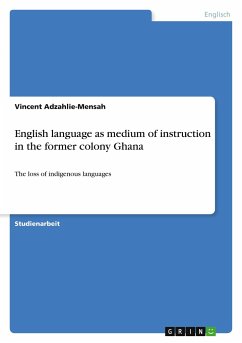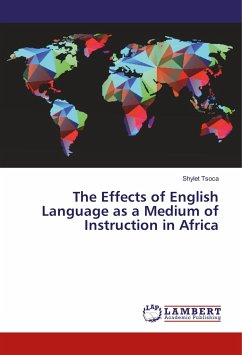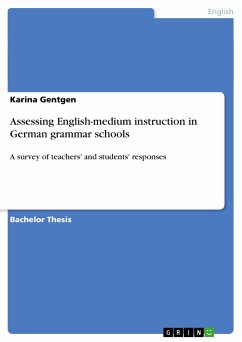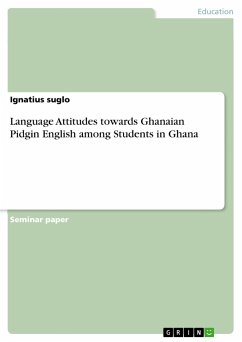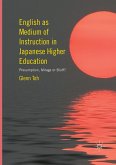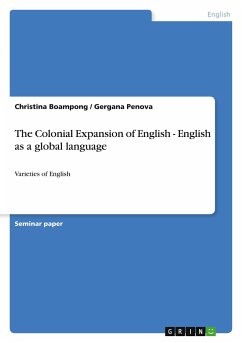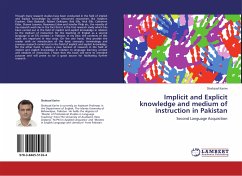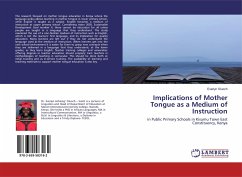Studienarbeit aus dem Jahr 2020 im Fachbereich Anglistik - Kultur und Landeskunde, , Sprache: Deutsch, Abstract: This paper used evidence from the literature, policy documents and the field to analyse the epistemic and pedagogic effects of using English language as the language of instruction in an ex-colony. The analysis proceeds from coloniality theory focusing on the rights of indigenous people to a linguistic identity.It highlights how educational language choice legitimises linguistic imperialism in which ideology simplifies the sociolinguistic field, rendering some persons and their sociolinguistic existence invisible or less important. The central thesis advanced is the idea that using English, legitimises and sustains the colonial proposition that indigenous languages are inadequate as teaching media.It is argued that using English reduces indigenous languages to literary vernacular; and to that consistency represents denial of identity, the cutting of a tongue and the amputation of being. The analysis discusses using English as delegitimising indigenous knowledge, and cultural practices that are usually associated with indigenous languages.

